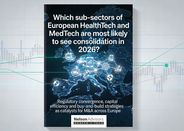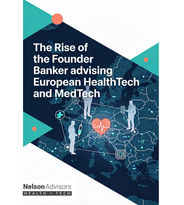MHRA establishes UK AI Healthcare Regulation Commission for Ambient Voice Technology and AI Tools
- Nelson Advisors

- Sep 26, 2025
- 14 min read

The UK National Commission on the Regulation of AI in Healthcare: An Expert Analysis
Executive Summary
The UK National Commission on the Regulation of AI in Healthcare has been established as a critical, non-statutory advisory body by the Medicines and Healthcare products Regulatory Agency (MHRA) to address the growing disparity between the rapid pace of artificial intelligence (AI) innovation and a legacy regulatory framework. Its mandate is to review existing regulations and provide a comprehensive set of recommendations for a new, rewritten rulebook for AI in healthcare, which is expected to be published next year. This strategic initiative is designed with a dual purpose: to accelerate the safe and effective adoption of cutting-edge AI tools within the National Health Service (NHS) and to position the UK as a global leader in responsible health technology regulation, thereby attracting significant international investment.
The Commission's work is not merely a bureaucratic exercise; it is a direct response to a series of foundational challenges unique to AI. These include the "black box" problem, which erodes trust and complicates accountability; algorithmic bias, which can perpetuate and amplify existing health inequalities; and the difficulty of regulating continuously learning, or adaptive, AI systems that evolve after they are deployed.
While the MHRA has already begun addressing these issues through initiatives like the AI Airlock sandbox and various change programmes, the Commission's role is to formalise these efforts into a coherent, national framework.
Source: https://www.gov.uk/government/groups/national-commission-into-the-regulation-of-ai-in-healthcare
Introduction: The UK's Strategic Mandate for AI in Healthcare
The National Imperative for Digital Transformation
The establishment of the UK National Commission on the Regulation of AI in Healthcare is a foundational component of the government's broader strategic vision for digital transformation. It is framed within the context of the government's "Plan for Change" and the NHS's ambitious agenda to integrate technology to improve patient outcomes and operational efficiency. This is not a theoretical exercise; AI is already making a substantial difference across the NHS.
For instance, AI-supported diagnostics have been shown to reduce diagnostic errors by 42% in some hospitals. Furthermore, AI tools are currently in use in 100% of England's stroke units to analyse brain scans, assisting doctors in making rapid and informed treatment decisions. The demonstrated efficacy of these early applications provides the clear and urgent rationale for a regulatory framework that can accelerate the safe adoption of even more transformative technologies.
The Critical Gap: Innovation Outpacing Regulation
The primary problem that the Commission is tasked with solving is the disjunction between the blistering pace of AI innovation and the limitations of the existing regulatory framework. Lawrence Tallon, the Chief Executive of the MHRA, has explicitly articulated this challenge, stating, “We want regulation of AI in healthcare to move at the pace of innovation”. The current "regulatory rulebook" was predominantly designed for static medical devices, such as pharmaceuticals and hardware, and is not equipped to handle the unique characteristics of AI systems.
Unlike a pill or a fixed piece of hardware, the performance of an AI system can change over time and may vary across different patient populations, presenting novel challenges for oversight and assurance.This regulatory uncertainty is currently holding back a range of promising technologies, from administrative assistants to diagnostic tools.
The Commission's purpose is to resolve this specific bottleneck, creating a clear and predictable pathway that fosters innovation while maintaining the highest standards of patient safety and public confidence.
The UK National Commission: Mandate, Structure, and Immediate Focus
Establishment and Mandate
The UK National Commission on the Regulation of AI in Healthcare has been established by the MHRA as a non-statutory advisory body. Its central mandate is to advise the MHRA on how to "re-write the regulatory rulebook on AI in healthcare". The ultimate output of this work will be a new regulatory framework set to be published in 2026. A key step in this process will be a "call for evidence" that is expected to invite contributions from a diverse range of stakeholders, both within the UK and internationally, to help shape the Commission's recommendations and address "the most pressing challenges" in AI regulation. The MHRA has committed to acting on these recommendations, which will support the digital transformation of the NHS and advance the UK's ambition to become a global hub for health tech investment.
Composition and Leadership
The composition of the Commission is a strong indicator of the breadth and depth of its mandate. It intentionally brings together a multidisciplinary group of experts from global tech firms, such as Google and Microsoft, alongside leading clinicians, researchers, and patient advocates. This diverse representation is a deliberate strategy to build a regulatory framework that is "trusted by the public and health professionals".
The leadership of the Commission further reinforces this balanced approach. It is chaired by Professor Alastair Denniston, a practising NHS clinician and head of the UK's Centre of Excellence in Regulatory Science in AI & Digital Health (CERSI-AI). Serving as Deputy Chair is the Patient Safety Commissioner, Professor Henrietta Hughes, who has emphasised the critical importance of incorporating patients' views to ensure the safe and equitable use of AI.
Immediate Priorities and Tangible Goals
The Commission's work is not abstract; it is focused on providing immediate "regulatory clarity" for specific technologies currently stalled by uncertainty.The initiative is designed to unblock innovation and enable the NHS to get quicker access to a range of proven AI tools.
The report highlights three key, tangible goals for the Commission's initial review:
AI Assistants for Clinicians: The Commission will immediately review technologies like "Ambient Voice Technology" that can reduce administrative burden for doctors by automatically taking notes. Early tests have already shown that this technology can allow clinicians to spend more time focusing on patients and increase the number of people seen in A&E.
AI Tools for Diagnostics: A core priority is to provide regulatory clarity for AI tools used in radiology and pathology, which are already showing immense promise.
Remote Monitoring Systems: The Commission will also address regulatory hurdles for systems that support virtual care of patients in their own homes, alerting staff to early signs of deterioration and helping people live more independently.
The causal link between regulatory uncertainty and stalled innovation is clearly understood, and the Commission is positioned as the direct solution to provide the necessary clarity and accelerate the deployment of these technologies across the NHS.
Foundational Regulatory and Ethical Challenges: The Commission's Core Mission
The Black Box Problem and the Imperative for Explainability
The most significant regulatory hurdle the Commission must address is the "black box" nature of many complex AI systems, particularly those that use deep learning algorithms.This opacity means that healthcare professionals cannot fully understand how an AI model arrived at a specific diagnosis or treatment recommendation. This lack of transparency directly conflicts with fundamental medical principles, such as "do no harm" and the ability to obtain truly informed consent from patients, as doctors cannot adequately explain the basis of an AI-assisted decision.
Without this critical understanding, trust in the technology among both clinicians and patients erodes, serving as a major barrier to widespread adoption. The MHRA has already recognised this challenge and has dedicated a specific work package, 'Project Glassbox,' to articulate the safety and quality concerns that can arise from poorly interpretable AI.
The Commission's new framework is expected to build upon this existing work by providing clear guidance on how manufacturers must demonstrate the interpretability of their products to ensure they are trusted and used appropriately in clinical settings.
Algorithmic Bias and the Amplification of Health Inequities
Another critical challenge for AI regulation is the risk of perpetuating and even amplifying existing health inequalities through algorithmic bias. This bias often originates from the training data itself, which may not be representative of diverse populations.
For example, AI models trained predominantly on data from light-skinned individuals may be significantly less accurate at detecting skin cancer in patients with darker skin tones. When deployed at scale, such biased systems can result in inaccurate diagnoses or substandard care for large, underserved patient groups.
The MHRA acknowledges that its existing medical device regulations require products to be safe for their intended use population, but the agency also recognises the need for new guidance to address specific AI-related risks, such as generalisability and bias. The Commission's framework must provide a clear pathway for manufacturers to demonstrate they have actively mitigated these risks, ensuring that AI is inclusive and equitable for all patients.
Regulating Continuously Learning (Adaptive) AI
The core tension in regulating AI stems from its ability to adapt and learn from new data in real-world settings.Unlike conventional AI models that are "locked" after approval, adaptive AI systems can continually update themselves, potentially becoming more accurate and personalised over time. However, this dynamic nature presents a fundamental challenge to traditional regulatory models, which are predicated on the assumption that a product remains stable after it has been approved. This raises critical questions about how regulators can ensure a system remains safe and effective if it is constantly evolving and how performance updates should be managed.
The MHRA has directly addressed this issue with its "AI Airlock" regulatory sandbox, a controlled environment for testing adaptive algorithms before full deployment. The Commission's work is essential to translating this pilot initiative into a scalable, national framework that balances the need for accelerated access to innovative technologies with the critical requirement for continuous post-market surveillance and patient protection.
Data Governance, Privacy, and Cybersecurity
A robust regulatory framework for AI in healthcare is inextricably linked to stringent data governance, privacy, and cybersecurity standards. AI systems process vast amounts of sensitive patient data, and any framework must ensure that this information is protected and handled with the utmost care. Public trust is paramount, and past controversies, such as the improper sharing of patient data by Google's DeepMind with a UK hospital, have demonstrated how quickly confidence can be eroded. The UK's Data Protection Act 2018 (DPA) provides a foundation for this, but the Commission must ensure that its recommendations for AI regulation align with and reinforce these protections, mandating strong encryption, access controls, and transparent consent policies to safeguard patient information and maintain public confidence.
Core Challenges for Regulating AI in Healthcare
Challenge | Description | Relevance to the Commission |
Transparency and Explainability | The "black box" nature of complex AI models makes it difficult to understand how decisions are reached, undermining trust. | The Commission's new framework will need to provide guidance on ensuring AI outputs are interpretable and trusted by clinicians and patients. |
Algorithmic Bias | AI models trained on non-representative data can produce biased and inequitable outcomes for certain patient groups. | A key focus is to guard against bias and ensure AI is inclusive and equitable, especially for underserved populations. |
Adaptive AI Regulation | The ability of adaptive AI to learn and change post-deployment challenges traditional, static regulatory approval models. | The Commission will advise on how to manage post-market surveillance and performance updates for continuously learning systems. |
Workforce Readiness | Lack of AI literacy and skepticism among NHS staff are significant barriers to successful adoption and safe use. | While not a direct regulatory issue, the Commission's recommendations for a trustworthy framework will indirectly help build staff confidence and accelerate adoption. |
Broader Systemic Barriers and The Adoption Landscape
Procurement and Funding Hurdles
While the Commission's work is focused on regulatory clarity, the analysis reveals that a new rulebook alone will not guarantee widespread AI adoption across the NHS. Significant systemic barriers exist at the local level. Research on the NHS AI Diagnostic Fund, for example, found that the procurement and deployment of AI tools took between six and ten months longer than anticipated. This was largely due to complex and fragmented governance structures, as each of the hundreds of NHS organisations has its own unique IT systems and approval procedures.
This variation creates bottlenecks and significantly increases the workload for trusts and vendors alike. Furthermore, existing funding models often favour short-term research and innovation projects over long-term implementation and adoption, creating sustainability challenges that make it difficult for organisations to justify the necessary upfront investment.
Workforce Readiness and AI Literacy
Another critical barrier is the readiness of the NHS workforce itself. While general attitudes toward AI in healthcare are positive, especially among those with direct experience, many clinicians and staff still harbour concerns about privacy breaches, personal liability, and potential job displacement. This skepticism and the varying levels of AI literacy across the workforce are major implementation barriers. The analysis underscores the need for comprehensive AI education and training, from undergraduate medical curricula to continuing professional development programs.
The NHS England AI Team is actively working on initiatives to embed responsible and ethical AI into services and empower staff.
The Commission’s work, by providing a trustworthy and transparent regulatory framework, can help to build confidence and mitigate these concerns, but it cannot address the underlying educational and cultural shifts required for successful, large-scale implementation.
The MHRA's Pro-Innovation Approach in Context
The Commission's work is part of a broader, coordinated MHRA strategy to foster a pro-innovation environment without compromising safety. The MHRA has already launched a regulatory sandbox, the "AI Airlock," to work with manufacturers and clinicians to tackle the challenges of regulating AI as a medical device. The agency has also strengthened the post-market surveillance aspects of its medical device regulations, with new legislation taking effect to increase patient safety through additional obligations on manufacturers for gathering post-market data. This multi pronged approach, combining a high-level advisory commission with practical, on-the-ground pilots, demonstrates a sophisticated understanding of the complex challenges ahead.

Stakeholder Perspectives and The Path Forward
A Unified Voice of Support
The formation of the Commission has been met with a unified and overwhelmingly positive reaction from key stakeholders across government, industry, and healthcare. Science and Technology Secretary Liz Kendall stated that the Commission will ensure the UK "leads the way" in making these "game-changing technologies" available quickly and safely. Lawrence Tallon, CEO of the MHRA, has emphasised that the goal is to find the "sweet spot" of predictable and proportionate regulation that will bring "clarity and confidence" to the market.
The Patient Safety Commissioner, Professor Henrietta Hughes, reinforced the need for careful regulation that is both safe and equitable. Peter Ellingworth, Chief Executive of the Association of British HealthTech Industries (ABHI), welcomed the initiative, highlighting its importance for attracting investment and shaping supportive regulation. This broad-based support signals a high degree of consensus on the importance of the Commission's mission and suggests that its recommendations will have the necessary political and social capital to be successfully implemented.
Global Context: The UK's Sector-Specific Approach
The UK's approach to AI regulation is a deliberate strategic choice that sets it apart from other major global players. In contrast to the European Union's comprehensive and broad-based AI Act, which classifies most healthcare AI as "high-risk" and imposes a prescriptive set of rules, the UK is pursuing a sector-specific, "pro-innovation" framework.
Lawrence Tallon of the MHRA has affirmed that the UK's framework will not be a simple replica of the EU's.
This divergence is intended to provide a faster and more flexible pathway to market, thereby attracting global health tech companies to invest and deploy their latest innovations in the UK. By creating a clear, tailored regulatory environment, the UK aims to cement its reputation as a global leader in responsible AI and gain a competitive edge in the global health tech market.
Timeline and Expected Outcomes
The Commission is expected to launch a formal call for evidence to inform its work in the coming weeks. The culmination of its efforts will be the delivery of a set of recommendations to the MHRA, which will, in turn, inform a new regulatory rulebook on AI in healthcare. This new framework is set to be published in 2026.The MHRA has made a public commitment to act on these recommendations, supporting the NHS's digital transformation and advancing the UK's ambition to become a global hub for health tech investment.
Conclusion and Recommendations
Synthesis of Findings
The UK National Commission on the Regulation of AI in Healthcare is a timely and strategic initiative to bridge the gap between rapid technological advancement and an outdated regulatory framework. The Commission's work is essential for creating a modern rulebook that addresses the unique technical and ethical challenges posed by AI, including the "black box" problem, algorithmic bias, and the regulation of continuously learning systems.
While the MHRA has already begun to address these issues through targeted pilots and change programmes, the Commission's role is to formalise these efforts into a coherent, national framework that provides clarity, builds trust, and accelerates the safe adoption of AI across the NHS.
However, the report also concludes that the success of this regulatory reform will depend on a parallel effort to address systemic, non-regulatory barriers, such as fragmented IT infrastructure, complex procurement processes, and a lack of AI literacy within the workforce.
Forward-Looking Recommendations
Based on the exhaustive analysis, the following forward-looking recommendations are proposed to ensure the Commission's work translates into tangible, widespread benefits for the NHS and the UK economy:
Prioritise Transparency and Accountability: The new regulatory framework must provide explicit, actionable guidance for manufacturers on how to demonstrate the interpretability and explainability of their AI models. A clear, auditable trail of an AI's decision-making process is essential for building trust among clinicians and patients and for assigning accountability in cases of error.
Establish Flexible Pathways for Adaptive AI: The framework should move beyond the traditional, static approval model to create a flexible, risk-based pathway for continuously learning AI. This could involve a combination of rigorous pre-market validation and a robust system for ongoing post-market surveillance that allows for safe, real-time performance updates without requiring constant re-certification.
Scale AI Literacy Programs: To overcome skepticism and build competence, policymakers should collaborate with professional bodies to develop and scale AI education and training programs for the NHS workforce. These programs should cover the foundational principles of AI, its ethical implications, and practical guidance on its safe and effective use in clinical practice.
Address Systemic Barriers to Adoption: The government must address the underlying operational and logistical challenges within the NHS. This includes standardizing IT systems where possible, streamlining procurement processes, and ensuring that funding models support the long-term implementation and scaling of AI technologies, not just initial research and pilot projects.
Continue International Collaboration: The UK should leverage its pro-innovation stance to continue international collaboration with regulatory bodies like the FDA and Health Canada to promote harmonized standards where possible, while maintaining a tailored approach that gives the UK a competitive edge in attracting global health tech investment.
By addressing these interconnected challenges, the UK can successfully balance the imperatives of innovation and patient safety, fulfilling its ambition to be a global leader in AI-enabled healthcare and transforming the NHS for the benefit of all.
Nelson Advisors > MedTech and HealthTech M&A
Nelson Advisors specialise in mergers, acquisitions and partnerships for Digital Health, HealthTech, Health IT, Consumer HealthTech, Healthcare Cybersecurity, Healthcare AI companies based in the UK, Europe and North America. www.nelsonadvisors.co.uk
Nelson Advisors regularly publish Healthcare Technology thought leadership articles covering market insights, trends, analysis & predictions @ https://www.healthcare.digital
We share our views on the latest Healthcare Technology mergers, acquisitions and partnerships with insights, analysis and predictions in our LinkedIn Newsletter every week, subscribe today! https://lnkd.in/e5hTp_xb
Founders for Founders > We pride ourselves on our DNA as ‘HealthTech entrepreneurs advising HealthTech entrepreneurs.’ Nelson Advisors partner with entrepreneurs, boards and investors to maximise shareholder value and investment returns. www.nelsonadvisors.co.uk
#NelsonAdvisors #HealthTech #DigitalHealth #HealthIT #Cybersecurity #HealthcareAI #ConsumerHealthTech #Mergers #Acquisitions #Partnerships #Growth #Strategy #NHS #UK #Europe #USA #VentureCapital #PrivateEquity #Founders #BuySide #SellSide#Divestitures #Corporate #Portfolio #Optimisation #SeriesA #SeriesB #Founders #SellSide #TechAssets #Fundraising#BuildBuyPartner #GoToMarket #PharmaTech #BioTech #Genomics #MedTech
Nelson Advisors LLP
Hale House, 76-78 Portland Place, Marylebone, London, W1B 1NT
Meet Us @ HealthTech events
Digital Health Rewired > 18-19th March 2025 > Birmingham, UK
NHS ConfedExpo > 11-12th June 2025 > Manchester, UK
HLTH Europe > 16-19th June 2025, Amsterdam, Netherlands
Barclays Health Elevate > 25th June 2025, London, UK
HIMSS AI in Healthcare > 10-11th July 2025, New York, USA
Bits & Pretzels > 29th Sept-1st Oct 2025, Munich, Germany
World Health Summit 2025 > October 12-14th 2025, Berlin, Germany
HealthInvestor Healthcare Summit > October 16th 2025, London, UK
HLTH USA 2025 > October 18th-22nd 2025, Las Vegas, USA
Web Summit 2025 > 10th-13th November 2025, Lisbon, Portugal
MEDICA 2025 > November 11-14th 2025, Düsseldorf, Germany
Venture Capital World Summit > 2nd December 2025, Toronto, Canada



















































Comments